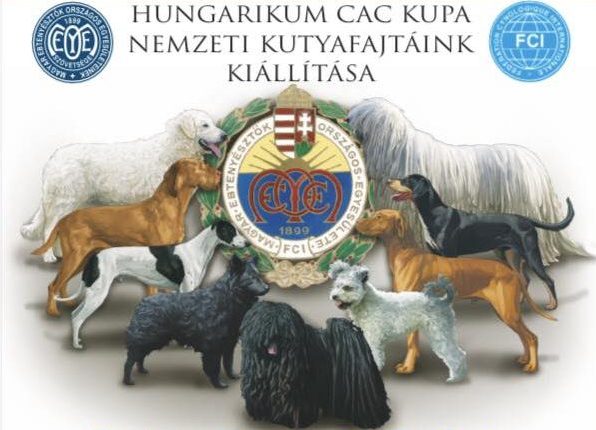
Hungarian dog breeds are the result of centuries of breeding by the Hungarians and are part of the Hungarian countryside.Continue reading

Researchers from the Department of Ethology at Eötvös Loránd University (ELTE) have proven that dogs not only guess what a word means based on the context, but also evoke a memory trace, a mental representation, when they hear the word, Index reports.
New dog brainwave research has shown that dogs know the names of their favorite toys. Pavlov would not be surprised by this finding, but neither would any true dog owners. The brainwave study by the ELTE researchers, is published in the journal Current Biology, and reveals that
in dogs, hearing the name of their favorite toy activates the memory of the object.
Previous laboratory studies have shown that when dogs were asked to retrieve objects by name, it was not the word but the how – i.e. the pronunciation and intonation – and the when that influenced the correct performance of the task.
It is therefore not known for sure whether the dogs understood the name of the object itself. Even those researchers who claim that dogs listen to human speech see the animals as responding with learned behavior only to specific sounds.

Photo: Pixabay
The new research comes from ELTE researchers who are at the forefront internationally in publishing prestigious dog studies. Lilla Magyari and her colleagues used a non-invasive brain imaging technique on 18 dogs in the Budapest lab, i.e. they glued electrodes to the dogs’ heads to monitor their brain activity.
The owners told the dogs the name of the object, showed it to them (“Look, the ball!”) and also showed them another object. After analyzing the EEG records, different brain patterns were found when the dogs saw the object that matched and did not match the word. This type of experiment has been used in humans for decades, and is accepted as evidence of semantic processing or understanding of meaning.

Photo: Pixabay
Marianna Boros, co-author of the study, said that semantic processing was observed in 14 dogs.
No matter how big the dog’s vocabulary is, the dog’s mind is able to conjure up the mental representation associated with a word when it hears it. So it seems that this ability is not only specific to a few individuals with an exceptionally large number of vocabulary words, but is present in dogs in general,”
added Attila Andics, leader of the research team.
Holly Root-Gutteridge, a dog behavior researcher at the University of Lincoln in England, said that previously, dogs were seen as evidence of genius when they could find certain toys by name. The new study suggests this is more typical of dogs in general, not just those with exceptional ability.
Another conclusion of the study is that dogs understand human voices much better than previously imagined. But not all experts were equally enthusiastic. Clive Wynne, an ethologist specializing in the behavior of dogs at Arizona State University, is not convinced. He believes that the evidence from the Hungarian researchers is insufficient, although he praised the new type of experiment.
Via Index, Featured image: Facebook/Eötvös Loránd Tudományegyetem – ELTE